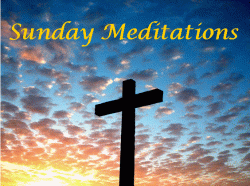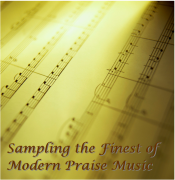 Sunday Mediations — posts encouraging us all to meditate on the things of our Savior, on His day.
Sunday Mediations — posts encouraging us all to meditate on the things of our Savior, on His day.
I don’t have a healthy enough view of God. I’ll be the first to admit that. I don’t comprehend his ultimate greatness, his “otherness” and transcendence. His awful holiness. Yes “awe-ful” and terrifying, holiness.
The Bible repeatedly calls on us to fear God. Yet fearing God is foreign to our nature. We live and breathe as if God isn’t. No wonder we don’t fear him.
And for those raised in Christianity (like me), we assume that we can approach God. We assume that we shouldn’t have to fear Him. And isn’t Christianity all happy-go-lucky anyway? What’s this about fear? Why should we tremble before God, don’t we have our ticket to heaven already?
With these thoughts in mind, lets approach a text this morning:
And if you call on him as Father who judges impartially according to each one’s deeds, conduct yourselves with fear throughout the time of your exile, knowing that you were ransomed from the futile ways inherited from your forefathers, not with perishable things such as silver or gold, but with the precious blood of Christ, like that of a lamb without blemish or spot. He was foreknown before the foundation of the world but was made manifest in the last times for your sake, who through him are believers in God, who raised him from the dead and gave him glory, so that your faith and hope are in God. (1 Pet. 1:17-21)
I’ve been teaching through 1 Peter in our small group class every other Sunday night. This passage was a bit perplexing.
“Conduct yoursleves with fear” is one of four commands in this passage (“set your hope”–v. 13; “be holy”–v. 15; and “love one another”–v. 22 are the others). And I knew that the passage beautifully illustrates the relationship between Biblical imperatives and indicatives. Each command is expressly connected with facts that are true because of who we are in Christ.
So I was puzzled by the connection between vs. 17 and the verses that follow. In light of the preciousness of your redemption, fear God? That didn’t seem to follow, unless we are talking a debtor’s ethic where because of Christ’s sacrifice we should go on and labor in fearing God out of debt.
In looking at the text, it also seems to be disconnected. Fear God, knowing you were ransomed, not with perishable silver and gold, but with Christ. And Christ is like a lamb without blemish, foreknown and manifest for you, who believe in God. The main point of all this is still “fear God” so how does it all fit?
As I scanned through Calvin’s comments on this passage, his discussion of vs. 21 grabbed me. Here’s an excerpt:
…as faith unites us to God, we shun and dread every access to him, except a Mediator comes who can deliver us from fear. For sin, which reigns in us, renders us hateful to God and him to us. Hence, as soon as mention is made of God, we must necessarily be filled with dread; and if we approach him, his justice is like fire, which will wholly consume us.
It is hence evident that we cannot believe in God except through Christ, in whom God in a manner makes himself little, that he might accommodate himself to our comprehension; and it is Christ alone who can tranquillize consciences, so that we may dare to come in confidence to God.
As I really grasped the glory of what was being said in vs. 21, everything clicked. We are to fear God, and this is impossible in ourselves. So we are reminded that we’ve been ransomed from our futile ways. And not just ransomed with a fool’s gift of gold, we’ve been ransomed by the precious blood of Christ. The very Christ who like the Paschal Lamb of old, was foreknown and chosen to suffer wrath in our place. This Jesus came and died “for [our] sake”. And thus through him we believe in God. And God’s resurrection of Jesus was all designed “so that [our] faith and hope [would be] in God”.
We can fear God, and reverence him, not as a vanquished foe trembles before Him. Rather because of the sacrifice accomplished for us, and because God himself has worked so that our faith and hope are in Him, we reverently fear God with Christ at our side. Because of our mediator we can approach this fearful God. And from Jesus, we can learn the true extent of God’s wrath which should cause us to tremble, while we also learn that all of that wrath was taken away for us in Jesus.
Oh how happy we are to have such a glorious mediator! Let us respect and reverence, yea fear, our Holy God more. Yet we need never shudder at this command, because we remember that God is accepting us, yea welcoming us to come boldly before His throne (which for us is a throne of grace) by the new and living way of Christ our crucified and Risen Savior! (Heb. 4:16, 10:19-21).
Like this:
Like Loading...
 For the next few days, I’ll be posting excerpts from Nancy Guthrie’s Jesus, Keep Me Near the Cross: Experiencing the Passion and Power of Easter (Crossway). Join me as I aim to contemplate the cross this passion week.
For the next few days, I’ll be posting excerpts from Nancy Guthrie’s Jesus, Keep Me Near the Cross: Experiencing the Passion and Power of Easter (Crossway). Join me as I aim to contemplate the cross this passion week. As preparation for Easter, I’ve been reading
As preparation for Easter, I’ve been reading  Happy Easter, everyone. This song is a wonderful Gospel-centered song from the authors of
Happy Easter, everyone. This song is a wonderful Gospel-centered song from the authors of 